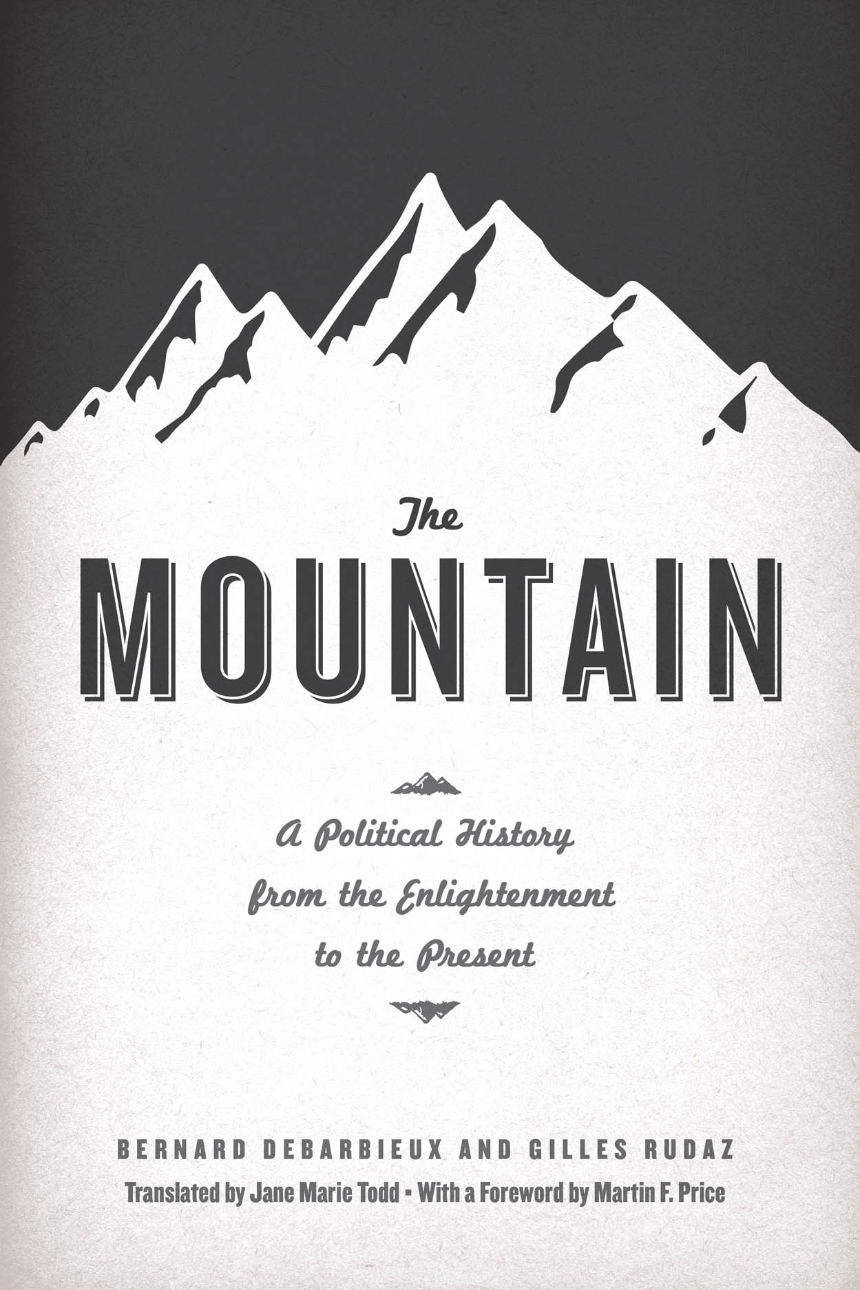The Mountain
A Political History from the Enlightenment to the Present
In The Mountain, geographers Bernard Debarbieux and Gilles Rudaz trace the origins of the very concept of a mountain, showing how it is not a mere geographic feature but ultimately an idea, one that has evolved over time, influenced by changes in political climates and cultural attitudes. To truly understand mountains, they argue, we must view them not only as material realities but as social constructs, ones that can mean radically different things to different people in different settings.
From the Enlightenment to the present day, and using a variety of case studies from all the continents, the authors show us how our ideas of and about mountains have changed with the times and how a wide range of policies, from border delineation to forestry as well as nature protection and social programs, have been shaped according to them. A rich hybrid analysis of geography, history, culture, and politics, the book promises to forever change the way we look at mountains.
352 pages | 25 halftones, 2 tables | 6 x 9 | © 2015
Earth Sciences: General Earth Sciences
Geography: Cultural and Historical Geography, Environmental Geography, Social and Political Geography
History: History of Ideas
Reviews
Table of Contents
Acknowledgments
Introduction
One / The Mountain as Object of Knowledge
Part I: The Mountain of States and Nations
Two / The Mountain and the Territoriality of the Modern State
Three / The Mountaineer: The Other in the Heart of the Nation, or Its Emblematic Figure?
Four / Politics of Nature
Five / The Mountain as Living Environment
Part II: The Mountain on a Global Scale
Six / The Mountain and Colonial and Postcolonial Territoriality
Seven / Exporting and Acclimatizing Regional Planning Models to the Tropics
Eight / The Globalization of Mountain Issues
Nine / Mountain Men and Women of Globalization
Ten / The EU Mountain: Nowhere to Be Found?
Eleven / The Unifying Mountain
Conclusion
Notes
Index
